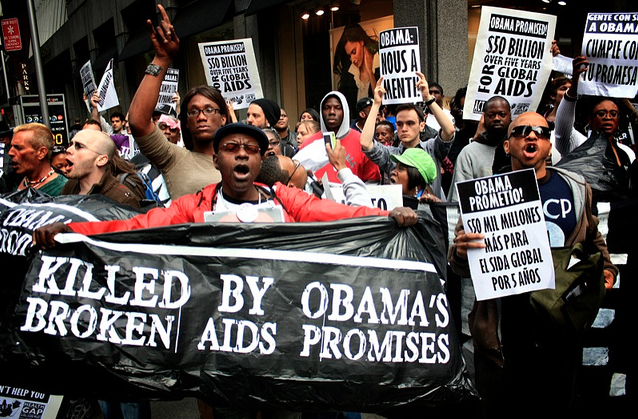Twenty two years ago today, Earvin “Magic” Johnson announced in a conference at the Great Western Forum in Los Angeles that he had tested positive for HIV, and would be retiring immediately from professional basketball.
After Johnson spoke, his doctors answered questions from the press about his medical condition. Note that the diagnosis of ARC (AIDS-related condition) is no longer in use.
The next day, Magic appeared on the Arsenio Hall Show to talk about his diagnosis. He encouraged people to practice safe sex and warned that the virus was spreadly quickly through black communities, but reassured the audience that he was “far from being a homosexual.” Toward the end of the interview, Magic and Arsenio referred obliquely to the rumors that journalists and “germalists” would spread in the weeks, months, and years to come. Magic had been dogged by rumors of bisexuality for years—in gay enclaves like Key West and West Hollywood, some residents reportedly sported t-shirts with the phrase “I love basketball; I had a Magic Johnson.”
A week later, Converse announced “Magic’s Athletes against AIDS,” a new campaign of public service announcements featuring Johnson and his NBA friends. Larry Johnson’s comment that “for a guy like Magic Johnson to get a disease like that… lets us know that this is not a joke” seems cruelly ignorant; by the end of the year, over 150,000 had died of AIDS in the United States alone. Overall, the PSA stressed precisely how different Johnson, an African American paragon of athletic masculinity, seemed from the most common images of people with AIDS—skeletal white gay men wasting away in the hospital or protesting in the street, and to a lesser extent, junkies who had shared needles while desperate for a fix. Kevin Johnson was not alone in thinking that “If Magic Johnson can get the AIDS virus, then anybody can get it.”
The next year, Magic and Arsenio produced a longer “edutainment” video for kids called “TIME OUT: The Truth about HIV, AIDS, and You,” with an early ’90s all-star cast, including Jaleel White, Jasmine Guy, Sinbad, Tom Cruise, Pauly Shore, and a young Neil Patrick Harris.
Last year, ESPN aired The Announcement, a documentary on Johnson’s “bleakest hour,” when he revealed his HIV-positive diagnosis to the world.
A few months later, Johnson was featured prominently in the PBS Frontline documentary Endgame: AIDS in Black America. (see my review of Endgame here) Recently, Hall and Johnson appeared on Access Hollywood to talk about their 1991 interview, as well as the ongoing racial disparities in the epidemic, particularly for African American women.
Thankfully, Johnson, who obviously has access to the best doctors and most effective treatments, remains healthy. Unfortunately, the same can’t be said for the vast majority of African Americans affected by the epidemic, who progress from HIV infection to AIDS and die faster than any other racial or ethnic group in the United States.

